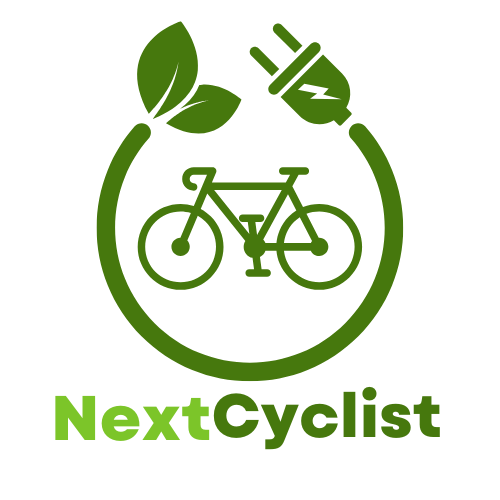Yes, a 500W e-bike can go uphill. The power of the motor helps the bike climb slopes effectively. Riders can expect smoother ascents on hills without much effort. This boost makes 500W e-bikes suitable for hilly areas.
Introduction
Are you eyeing a 500W e-bike to tackle those steep hills in your neighborhood? You’re not alone. Many riders face the same dilemma: can a 500W e-bike really handle the uphill grind? Understanding this power level is crucial, especially if you want to enjoy smooth rides without burning out halfway up that incline.
So, what’s the scoop? In this article, we’ll explore the real capabilities of a 500W electric bike when it comes to climbing hills, breaking down factors like motor strength, terrain, and rider weight. Knowing how these elements play together can save you time and money in your search for the perfect ride.
Let’s get into the nuts and bolts of whether a 500W e-bike can conquer those tough slopes, ensuring you make an informed choice. By the end, you’ll feel ready to hit those hills with confidence. Stick around—it’s going to be enlightening!
TL;DR
- A 500W e-bike can effectively handle moderate inclines, making it a solid choice for hilly areas.
- Performance depends on terrain type, rider weight, and battery condition.
- Smooth surfaces yield better results than rough paths; heavier riders may experience more strain.
- Use lower gears for better torque and to prevent overheating while ascending hills.
- Maintain a steady pace to conserve battery life and ease your climb.
- Shift your body position forward to improve traction and bike stability on slopes.
Understanding Power and Hills
When it comes to climbing steep inclines, power output is a key factor—and that’s where your 500W e-bike shines. The wattage refers directly to the amount of power your electric bike can produce, making a significant impact on how well it handles hills.
In most cases, a 500W e-bike can tackle moderate inclines efficiently. Riders often find these bikes capable of maintaining a steady speed even when faced with slopes that would challenge less powerful e-bikes. However, it’s essential to consider a few variables that influence performance:
- Terrain type: Smooth, paved roads differ greatly from rough, rocky paths. A 500W e-bike will perform better on paved surfaces compared to loose gravel or steep, uneven terrain.
- Rider weight: Heavier riders may find their e-bike struggles more uphill. If you’re packing extra weight, it’s wise to know that this could impact speed and efficiency.
- Battery condition: A fully charged battery can help your e-bike work at its peak performance. Always make sure to check your battery level before starting any climb!
In essence, while your 500W e-bike can handle moderate hills with ease, the actual experience will depend on the above factors. If you’re planning on frequent climbs, consider familiarizing yourself with your e-bike’s battery performance and your terrain.
For those of you looking for deeper insights into maintaining your e-bike for optimal performance, be sure to check out our complete guide to e-bike maintenance and stay proactive about battery health with our e-bike battery calculator.
Tips for Riding Uphill on a 500W E-Bike
Riding uphill on a 500W e-bike can be challenging, but with the right techniques, you can tackle those inclines confidently. Here are some practical tips that will help you get the most out of your ride when faced with a steep hill.
Use Lower Gears for Better Torque and Control
When ascending hills, switching to a lower gear is crucial. Lower gears give you better torque, allowing your e-bike’s motor to work harder without straining itself. This helps prevent overheating and keeps the pedaling smooth. If you’re unsure when to shift, start in a lower gear before you hit the incline, and feel free to adjust based on how the bike responds.
Maintain a Steady Pace to Conserve Battery Life
Your e-bike battery might drain quickly if you pedal erratically while going uphill. Try to maintain a steady pace. Instead of pedaling hard for a brief burst, find a comfortable rhythm that allows the motor to assist you effectively. This sustainable approach not only saves your battery life but also makes climbing hills less exhausting.
Position Your Body Forward to Improve Traction
Shifting your weight forward can significantly improve traction on inclines. Lean slightly toward the handlebars to balance weight over the front wheel. This position helps the front tire grip the road better, preventing slippage and improving stability. If you find yourself sliding backward on a steep slope, adjusting your body position can make a big difference.
As you gear up for those uphill rides on your 500W e-bike, keep these tips in mind. Not only will they help improve your climbing ability, but they will also make your rides more enjoyable. Happy cycling!
| Tips | Benefits |
|---|---|
| Use lower gears | Better torque and control |
| Maintain a steady pace | Conserves battery life |
| Position body forward | Improves traction and stability |
To wrap it up, a 500W e-bike can definitely take on moderate hills if you keep a few key factors in mind. We’ve discussed how rider weight, terrain type, and battery condition all play a role in your uphill adventures. Plus, using lower gears, maintaining a steady pace, and positioning your body correctly can really boost your performance.
So, what are you waiting for? If you’re ready to conquer those inclines with your e-bike, subscribe for more hands-on tips, or check out our guides on e-bike maintenance and battery care. Your next cycling adventure is just a click away—let’s tackle those hills together! Happy riding!

